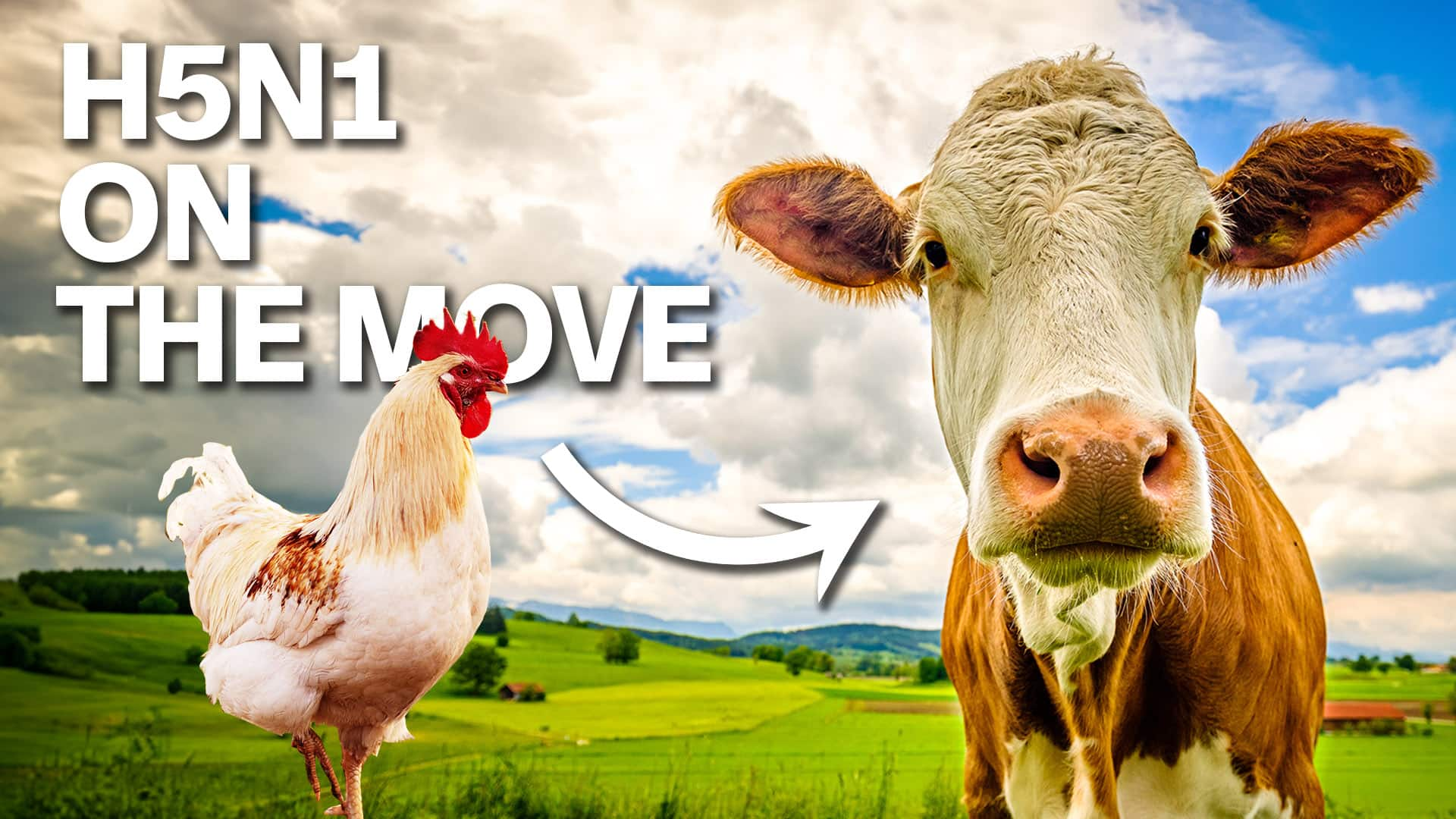Health
Avian flu confirmed in Canada geese at Abbotsford park – Prince Rupert Northern View – The Northern View

Avian flu is killing some of the Canada geese at an Abbotsford park, according to the founder of a local wildlife shelter.
Elizabeth Melnick of Elizabeth’s Wildlife Centre said she is getting almost-daily calls of geese being found dead or exhibiting symptoms at Mill Lake Park.
Several of the birds brought into the centre have since tested positive for the infection, she said.
Melnick said the number of cases she has seen surpasses those that occurred during the previous major avian flu outbreak in 2004.
“I don’t recall it ever being like this at Mill Lake,” she said. “It’s just spreading like wild fire.”
The first confirmation this year of H5N1 in B.C. was in mid-April at a commercial poultry producer in the north Okanagan.
Outbreaks have since been reported across B.C., including in mid-May at a commercial poultry farm in Abbotsford.
RELATED: Avian flu detected in birds at commercial farm in Abbotsford
Infected premises have been placed under quarantine by the Canadian Food Inspection Agency.
Melnick said she first became aware of the virus being spread locally to wild birds when an ill male wood duck and a duckling were brought to the centre from the Greater Vancouver Zoo in Aldergrove on May 16.
She said the birds were exhibiting obvious symptoms of avian flu – which impacts the central nervous system – including a shaking head.
Lab results confirmed the birds had contracted the virus.
Melnick then began receiving calls from the public about dead Canada geese at Mill Lake, and some sick ones have been brought to the centre.
She said a suspected case of avian flu requires her to isolate the birds from the other animals at the centre, and to gear up in personal protective equipment.
A confirmed case results in the bird having to be euthanized.
RELATED: B.C. avian flu spreading debate about bird management
Melnick said dealing with these cases has put a further strain on the wildlife centre at their busiest time of the year and before an expansion and renovations have taken place.
“It’s just added so much to our workload to an already-busy baby season working out of an Amco trailer,” she said.
Melnick said, with the exception of the first two birds, she has only seen the flu impacting Canada geese at Mill Lake.
Elizabeth’s Wildlife Centre is one of B.C.’s main wildlife rehabilitation centres, focusing on the care of small mammals and birds.
Its services include providing nutrition, medication and veterinary services to small creatures such as squirrels, rabbits, opossums, hummingbirds and crows until they are able to be released back to the wild.
Anyone who sees a dead wild bird is asked to call the Wild Bird Morality Investigation Program at 1-866-431-2473 to file a report.
vhopes@abbynews.com
Like us on Facebook and follow us on Twitter
Health
New technology to advance women’s cancer care at Southlake


|
|
NEWS RELEASE
SOUTHLAKE REGIONAL HEALTH CENTRE
**************************
This Cancer Awareness Month, Southlake is adding advanced technologies to detect and treat breast cancer and other women’s cancers thanks to generous community donor support, most recently through the HERE is Where Cancer Meets its Match campaign. New cancer care technology, including new mammography machines, the MyoSure System and the MOLLI 2® System will make a measurable impact in diagnosing and treating women’s cancers in the communities Southlake serves.
Southlake is installing three new mammography machines to expand its breast cancer screening program to 1,500 more women each year. Two of these machines have new biopsy capabilities that will reduce the number of cancelled exams due to equipment failure, ensuring timely care for women. Women ages 40 to 49 years old will be able to self-refer for publicly funded mammograms through the Ontario Breast Screening Program starting this fall.
“Early detection is critical when treating breast cancer and other women’s cancers,” said Lorrie Reynolds, Director, Regional Cancer Program at Southlake. “We treat more than 1,700 breast cancer patients at Southlake every year. By adding advanced technology, like the new mammography machines, we’re ensuring women have the best experience at Southlake.”
Southlake is also introducing the MyoSure System, an innovative technology that can help detect female reproductive cancers. Damaged tissue in a woman’s uterus such as fibroids and polyps can now be removed in a precise, minimally invasive procedure that leaves the rest of the uterus intact. This will improve the overall patient experience by supporting faster recovery, reducing the risk of infection and giving more women the option to have children. An estimated 200 women per year will benefit from the MyoSure System.
The new mammography machines and the MyoSure System build on Southlake’s recent investment in the MOLLI 2® System, a made-in-Canada wire-free breast localization technology. This technology is considerably less invasive and more accurate when compared to wire-guided localization, resulting in a better patient experience and improved cosmetic outcomes. More than 200 women each year will benefit from this innovative medical device as they are treated for breast cancer at Southlake.
“As a clinician caring for women with cancer in our community, I’m incredibly proud of the work Southlake is doing to advance women’s health and improve patient experiences,” said Sara Temple, MD, Surgical Oncologist and Chief of Surgery at Southlake. “Women who visit Southlake can be confident that they are receiving leading edge care, close to home when they need it most.”
The World Health Organization anticipates a 77 per cent increase in cancer diagnoses by 2050. Southlake serves some of the fastest growing communities in Canada and anticipates that the number of patients requiring cancer care will grow. By investing in new technology, Southlake is ensuring that women in the communities it serves have access to leading edge cancer care. All of these investments were funded with support from community donors who generously gave to Southlake to support investments into women’s health at the hospital.
“The generosity of our donor community and the impact they have made for women receiving cancer diagnosis and treatment at Southlake is something we can all take great pride in,” said Jennifer Ritter, President and CEO of Southlake Foundation. “From our Women’s Health Initiative donors supporting new mammography machines, to the Ladies in Philanthropy for Southlake funding the MOLLI 2 System, to our long-standing partners The Edge Benefits and Pheasant Run Golf Club enabling the introduction of MyoSure System through their joint annual charity golf tournament, we are incredibly lucky to share a vision of access to exceptional care for everyone who depends on Southlake when they need us most. Thank you, to every donor who contributed to these important upgrades to care for women.”
Southlake Foundation’s HERE is Where Cancer Meets its Match campaign supports the Stronach Regional Cancer Centre at Southlake. For more information or to make a donation, visit: southlake.ca/HERE.





Health
Pasteurized milk includes remnants of H5N1 bird flu, U.S. officials say


|
|
The U.S. Food and Drug Administration says that samples of pasteurized milk have tested positive for remnants of the bird flu virus that has infected dairy cows.
The agency stressed that the material is inactivated and that the findings “do not represent actual virus that may be a risk to consumers.” Officials added that they’re continuing to study the issue.
“To date, we have seen nothing that would change our assessment that the commercial milk supply is safe,” the FDA said in a statement on Tuesday.
The announcement comes nearly a month after an avian influenza virus that has sickened millions of wild and commercial birds in recent years was detected in dairy cows in at least eight states. The Agriculture Department (USDA) says 33 herds have been affected to date.
FDA officials didn’t indicate how many samples they tested or where they were obtained. The agency has been evaluating milk during processing and from grocery stores, officials said. Results of additional tests are expected in “the next few days to weeks.”
WATCH | Bird flu spread in U.S. cows:
For the first time ever, avian influenza, or H5N1 bird flu, was detected in roughly a dozen dairy cow herds across the U.S. About That producer Lauren Bird explores why scientists and public health officials are concerned about the cross-species transmission and whether humans are now at higher risk.
The polymerase chain reaction (PCR) lab test the FDA used would have detected viral genetic material even after live virus was killed by pasteurization, or heat treatment, said Lee-Ann Jaykus, an emeritus food microbiologist and virologist at North Carolina State University
“There is no evidence to date that this is infectious virus, and the FDA is following up on that,” Jaykus said.
Officials with the FDA and the USDA had previously said milk from affected cattle did not enter the commercial supply. Milk from sick animals is supposed to be diverted and destroyed. Federal regulations require milk that enters interstate commerce to be pasteurized.
Tests for viable virus underway, agency says
Because the detection of the bird flu virus known as Type A H5N1 in dairy cattle is new and the situation is evolving, no studies on the effects of pasteurization on the virus have been completed, FDA officials said. But past research shows that pasteurization is “very likely” to inactivate heat-sensitive viruses like H5N1, the agency added.
The agency said it has been evaluating milk from affected animals, in the processing system and on the shelves. It said it is completing a large, representative national sample to understand the extent of the findings.
Matt Herrick, a spokesperson for the International Dairy Foods Association, said that time and temperature regulations for pasteurization ensure that the commercial U.S. milk supply is safe. Remnants of the virus “have zero impact on human health,” he wrote in an email.
Scientists confirmed the H5N1 virus in dairy cows in March after weeks of reports that cows in Texas were suffering from a mysterious malady. The cows were lethargic and saw a dramatic reduction in milk production. Although the H5N1 virus is lethal to commercial poultry, most infected cattle seem to recover within two weeks, experts said.
To date, two people in the U.S. have been infected with bird flu. A Texas dairy worker who was in close contact with an infected cow recently developed a mild eye infection and has recovered. In 2022, a prison inmate in a work program caught it while killing infected birds at a Colorado poultry farm. His only symptom was fatigue, and he recovered.





Health
Remnants of bird flu virus found in pasteurized milk, FDA says


|
|
The U.S. Food and Drug Administration said Tuesday that samples of pasteurized milk had tested positive for remnants of the bird flu virus that has infected dairy cows.
The agency stressed that the material is inactivated and that the findings “do not represent actual virus that may be a risk to consumers.” Officials added that they’re continuing to study the issue.





-



 Health21 hours ago
Health21 hours agoRemnants of bird flu virus found in pasteurized milk, FDA says
-
News18 hours ago
Amid concerns over ‘collateral damage’ Trudeau, Freeland defend capital gains tax change
-
Art21 hours ago
Random: We’re In Awe of Metaphor: ReFantazio’s Box Art
-
Art15 hours ago
The unmissable events taking place during London’s Digital Art Week
-
Science20 hours ago
NASA hears from Voyager 1, the most distant spacecraft from Earth, after months of quiet
-



 Politics19 hours ago
Politics19 hours agoHow Michael Cohen and Trump went from friends to foes
-
Tech22 hours ago
Surprise Apple Event Hints at First New iPads in Years
-
Media21 hours ago
Vaughn Palmer: B.C. premier gives social media giants another chance





